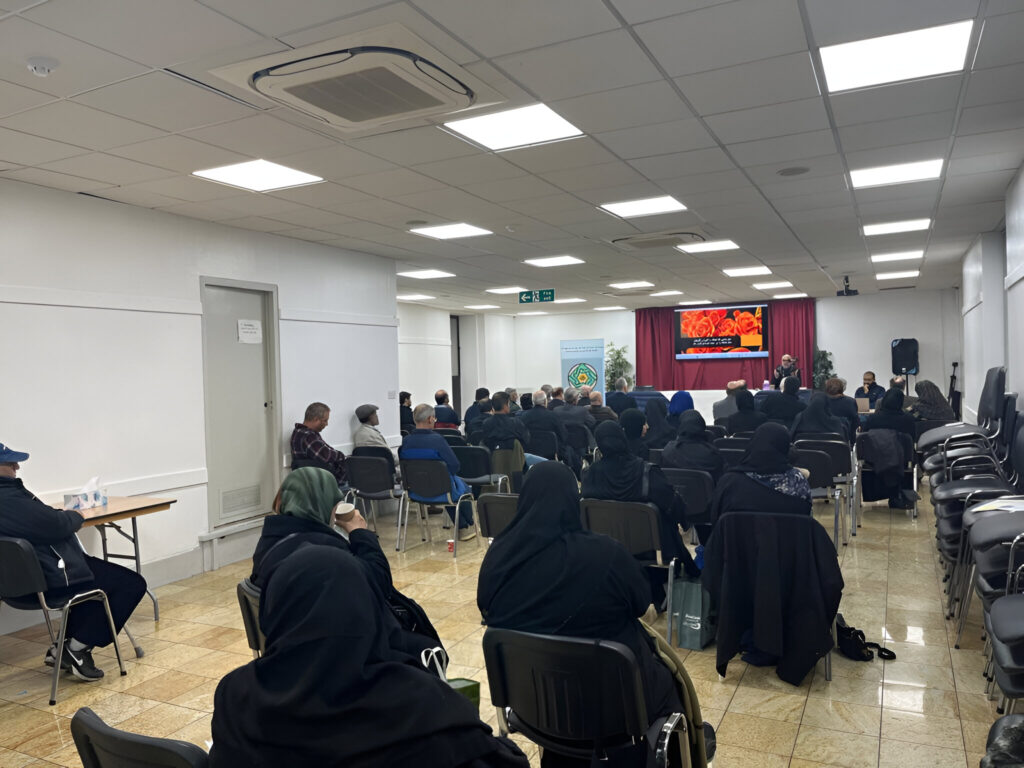
Definition of Unity and Convergence
Unity refers to the oneness and solidarity in which individuals in a society set aside differences and disagreements, come together, and move forward on a common path. This unity is manifested not only in beliefs and religious convictions but also in social actions and behaviors. Convergence means positive cooperation and interaction among individuals and groups to achieve common goals. In reality, convergence is one of the outcomes and benefits of unity, propelling the community towards progress and development.Importance of Unity and Convergence
The importance of unity and convergence among Muslims can be examined from several perspectives:-
- Preservation of Religious Identity: Unity among Muslims helps preserve their religious and cultural identity, making them more resilient against external threats. This shared identity can act as a source of strength against destructive forces.
-
- Strengthening Social Power: Unity and convergence empower the Islamic community, enabling it to better face challenges and problems. Cooperation and solidarity among community members increase collective strength and reduce issues and conflicts.
-
- Preventing Division and Discord: One of the key outcomes of unity is the prevention of division and discord. When Muslims stand together and move on a common path, conflicts and tensions are minimised, preventing the community from fracturing.
-
- Achieving Social Justice: Unity and convergence can help achieve social justice. In a society where individuals collaborate and stand against injustices, social justice is more likely to be realised.
The Role of Hedayat Centre in Strengthening Unity and Convergence
Hedayat Centre plays a significant role in strengthening unity and convergence among Muslims with its diverse goals and services. Through its educational, cultural, and religious programs, the Centre strives to guide community members towards solidarity and cooperation. The Hedayat Centreis a place where individuals with diverse characteristics and experiences come together, forming a network of solidarity and cooperation through interaction and friendship.
Goals of Hedayat Centre
-
- Promoting Religious Teachings: One of the main goals of Hedayat Centre is to promote and teach religious teachings. By organising classes and educational courses, the Centre aims to familiarise community members with the fundamentals and principles of Islam and encourage them to practice these teachings.
-
- Strengthening Social Connections: Hedayat Centre facilitates the strengthening of social connections and interactions among community members through cultural and social programs. These programs include celebrations, religious ceremonies, cultural competitions, and group activities, fostering familiarity and cooperation among individuals.
-
- Resolving Conflicts and Tensions: Another goal of Hedayat Centre is to help resolve existing conflicts and tensions within the community. By providing suitable advice and solutions, the Centre aims to reduce tensions and enhance solidarity among individuals.
Services of Hedayat Centre
-
- Holding Religious Gatherings: Hedayat Centre gathers community members through religious gatherings, guiding them towards unity and solidarity by offering religious discussions. These gatherings include prayer ceremonies, religious lectures, and Quranic interpretations.
-
- Cultural Activities: The Hedayat Centre strengthens social connections and solidarity among community members through cultural activities such as conferences, exhibitions, reading competitions, and art festivals.
-
- Education and Training: Hedayat Centre aims to increase the awareness and knowledge of community members by organising educational classes on various topics such as Islamic ethics, Islamic history, and religious sciences, guiding them towards practicing religious teachings.




Imam Hussein (A.S.)
Birth and Childhood: Imam Hussein (A.S.), the son of Imam Ali (A.S.) and Lady Fatima (S.A.), the daughter of the Prophet Muhammad (PBUH), was born on the 3rd of Sha’ban in the fourth year of the Hijri calendar in Medina. Raised under the Prophet’s guidance, he and his brother Imam Hassan (A.S.) were known as the “Leaders of the Youth of Paradise.” The Prophet Muhammad (PBUH) had a deep affection for Imam Hussein (A.S.) and referred to him as a part of himself. His childhood, spent with the Prophet, had a profound impact on his character. Youth and Role in Society: In his youth, Imam Hussein (A.S.) played various roles in the Islamic community, participating in several battles during the Prophet’s lifetime and being recognised as a brave warrior. After the Prophet’s passing, Imam Hussein (A.S.) continued to support Islamic principles and justice, contributing significantly to the community alongside his father, Imam Ali (A.S.). Period of Imamate: After Imam Hassan (A.S.) was martyred in 50 AH, Imam Hussein (A.S.) assumed the Imamate. During this period, Yazid bin Muawiya ascended to the caliphate and demanded Imam Hussein’s (A.S.) allegiance. Known for his commitment to justice and Islamic principles, Imam Hussein (A.S.) refused to pledge allegiance to the corrupt and unjust Yazid, becoming a symbol of resistance against tyranny and injustice.Ashura Day
Events Leading to Ashura: After refusing to pledge allegiance to Yazid, Imam Hussein (A.S.), along with his family and companions, moved from Medina to Mecca and then towards Kufa. Receiving invitations from the people of Kufa to lead them against Yazid’s oppressive rule, Imam Hussein (A.S.) was intercepted by Yazid’s forces in the desert of Karbala. On the 9th of Muharram, known as Tasu’a, despite being vastly outnumbered, Imam Hussein (A.S.) and his companions prepared for martyrdom. Events of Ashura: On the 10th of Muharram, 61 AH, a one-sided battle ensued between Imam Hussein (A.S.) and his 72 companions against Yazid’s army. Imam Hussein (A.S.) and his companions were brutally martyred, marking one of the greatest tragedies in Islamic history. Ashura is commemorated as a day when human and religious values stood against tyranny and injustice, leaving a lasting impact on Islamic history and culture.

Messages of Ashura
The Ashura event carries numerous messages that continue to inspire Muslims and people of other faiths. One of the most important messages is standing against tyranny and corruption. Imam Hussein (A.S.) demonstrated through his uprising that one must resist injustice and tyranny, even at the cost of one’s life. Another message of Ashura is the importance of loyalty, sacrifice, and devotion, as exemplified by Imam Hussein’s (A.S.) companions who sacrificed their lives for higher values.The Month of Muharram
Significance and History: Muharram, the first month of the Hijri calendar, is one of the most sacred months in the Islamic calendar. It is particularly significant due to the events of Karbala and the martyrdom of Imam Hussein (A.S.) and his companions on Ashura day. Muslims, especially Shia, commemorate this month with mourning ceremonies, eulogies, and lamentations. The history and significance of Muharram date back to the Prophet Muhammad’s (PBUH) time, but the Karbala event turned this month into a pivotal point in Islamic history. Mourning Ceremonies: Throughout Muharram, Muslims, particularly Shia, around the world hold various ceremonies. These include lectures, eulogies, chest-beating, and flagellation. The purpose of these ceremonies is to remember and honor Imam Hussein’s (A.S.) uprising and promote values of justice, sacrifice, and devotion. Mourning ceremonies during Muharram vary in different parts of the world, reflecting the cultural and religious impact of this event.






Lessons of Ashura on Unity
-
- Standing Against Oppression: One of Ashura’s most important lessons is standing against oppression and injustice. Imam Hussein (A.S.) and his companions demonstrated through their sacrifice that to preserve religious and human values, one must resist tyranny and corruption. This resistance is only possible through unity and solidarity among individuals.
-
- Cooperation and Collaboration: Another lesson from Ashura is the importance of cooperation and collaboration among individuals. Imam Hussein’s (A.S.) companions, through their unity and solidarity, managed to stand against enemy forces and achieve their noble goals.
-
- Human and Religious Values: The Ashura event reminds us to always pay attention to and act upon human and religious values. These values include justice, freedom, sacrifice, and solidarity, which can guide society towards progress and development.
The Role of Imam Hussein (A.S.) in Strengthening Unity
Imam Hussein (A.S.), through his uprising, showed not only Muslims but all of humanity the importance and necessity of unity and solidarity. His sacrifice and devotion left an everlasting example for Muslims to always strive for unity and stand against oppression and injustice.Messages of Ashura for Today’s Society
The messages of Ashura remain significant and applicable to today’s society. These messages can guide Muslims to strengthen unity and solidarity and confront challenges and problems. Inspired by these messages, the Hedayat Centre strives to lead community members towards unity and cooperation and encourages them to practice religious and human values. Unity and convergence among Muslims are fundamental principles of Islam and crucial factors for preserving and strengthening the Islamic community. The Hedayat Centre, with its diverse goals and services, plays a significant role in fostering this unity. By promoting religious teachings, strengthening social connections, and resolving conflicts, it guides community members towards solidarity and cooperation. The Ashura event and Imam Hussein’s (A.S.) uprising, symbolising unity and resistance against tyranny and injustice, have always inspired Muslims, and its messages can serve as a guide for today’s society in enhancing unity and solidarity.References
-
Martyrs of Karbala

Martyrs of Karbala (Arabic: شهداء كربلاء) are those who were martyred on Muharram 10th (‘Ashura’), 61/ October…
-
Qur’an

The Qurʾān (Arabic: القرآن) is the Muslim sacred scripture; they regard the contents and words of the…
-
Ahl al-Bayt (a)

Ahl al-Bayt (a) (Arabic: أهل البیت) means members of a household or a family.…
-
Ashura

The uprising of Husayn (as) is replete with ideas, concepts, values and…
-
The Concept of Martyrdom in Islam

The Concept of Martyrdom in Islam Islam as an all-inclusive systematic religion…
-
A speech by Yousif Ali

A speech by A. Yusuf ‘Ali, the most popular translator of the…
-
40 hadith for Imam Hussain

Ahadith, The Traditions 1. The Inferno of Husayni Love قال النبيٌُّ (ص):…
-
What is the message of Karbala?

Karbala is all about cruelty of human materialistic deeds; and the compassionate…
-
What is significance of Karbala event today?

The battle between justice and injustice continues to this day and age;…
-
What happened on 10th October 680 AD?

As a reformer, he stood against tyranny, injustice and ignorance. He sacrificed…
-
Who is Hussain (AS)?

Hussain (AS), a grandson of the Prophet of Muhammad (PBUH), the master of…










